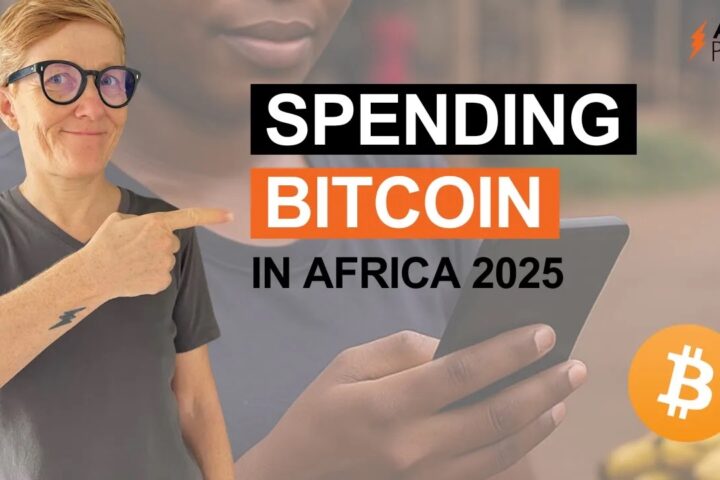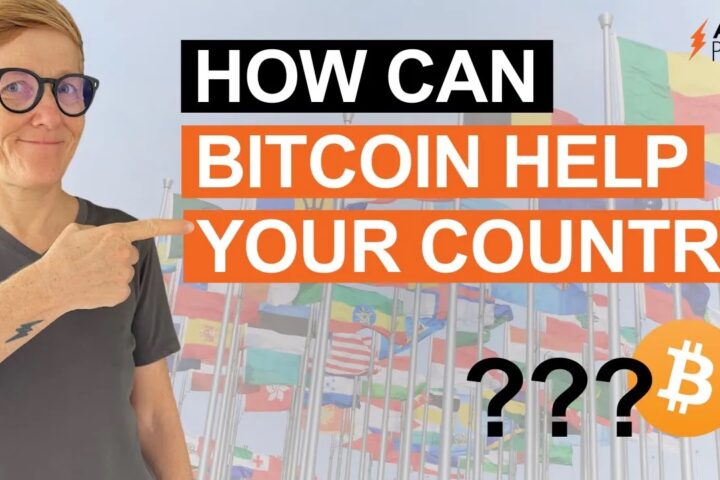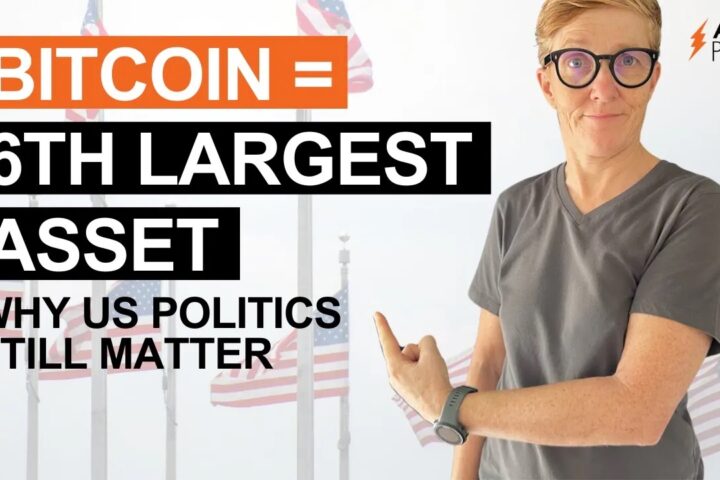Excerpt
I reflect on five years of working in grassroots Bitcoin adoption across Africa, sharing what works and what doesn’t. Too many people copy initiatives or chase hype without real results, while those builders solving real problems are often overlooked. This is a call to think critically, act intentionally, and start building.
Transcript
Copycats and builders, the challenges of Bitcoin education. As a European who has been working in Bitcoin education and adoption on the ground in Africa since 2020, I don’t claim to understand all the cultural, social and economic nuances at play, but sometimes being an outsider allows you to offer useful insights without claiming authority. When I visited Zimbabwe and Botswana the first time to learn if and how Bitcoin actually could challenge the wealth-extracting inflationary and exclusive traditional money system, I only found one or two grassroots education initiatives on the whole continent. By founding Bitcoin for Fairness in 2022, we aimed to build a broader platform fostering grassroots education through mentoring, capacity building, financial and infrastructural donations. We have been instrumental in supporting several initiatives from their early stages to becoming established communities since then. Now there are around 50 to 60 initiatives spreading education through local meetups or online sessions on the whole continent. Or at least they say so. If you’re following Twitter or Nostr, you can see all those projects popping up, many sharing pictures of graduations, workshop cohorts, holding up certificates or videos of how another merchant was onboarded to accept Bitcoin. This all looks like a great success. But if you are on the ground visiting these places, talking to people, watching educators at work, you start getting worried because you will notice that often the impact is minimal if it exists at all. Onboarding merchants, taking pictures of graduates, posting them on Twitter and Nostr is not enough. Orange pilling as it’s being called, your taxi driver and then vanishing forever and leaving them alone with their maybe 200 sats in a custodial wallet because that’s easy, is not Bitcoin adoption. If you don’t have people on the ground purchasing something with Bitcoin, the merchants will soon stop accepting it. Because why worry about keeping apps updated, key secure and learn about volatility? It’s too much headache and even more if the merchants themselves don’t have the opportunity to restock or pay for their own needs with Bitcoin because there are no peers to exchange it to local currency and no other shops accepting Bitcoin. If there is no one on the ground to contact in case of questions, problems or for guidance, people will feel Bitcoin is just another scam. There seems to be the idea that if you go and copy and paste community projects that have been successful in other countries, you will get support and funding from abroad. I have to tell you this is not working. How do I know? I have seen many, many grant applications and followed projects closely in the last five years. You cannot expect to start a Bitcoin podcast, publish one episode only or spread the message that you have a concept for a wallet specific to your country without ever showing a prototype or a demo and then reach out to organizations and donors and think you will be funded. You have to deliver proof of work first. Where is the minimum viable product? The prototype? What are your ideas around it? What issues are you solving with your product? How is your solution helping your community, country or region? What’s the budget to build it? How do you want to build it? Who will maintain it? How will you earn money with it? And on and on and on. You need to have answers to all these questions first. I have heard of some Bitcoin educators who use open source courses but still charge participants in low income African countries. This raises questions about their motivation and ethics. Bitcoin itself is an open source project which was founded voluntarily. No one paid Satoshi Nakamoto to build it. If you want to participate in Bitcoin and share knowledge because you stand behind the principles of Bitcoin and are convinced about the positive effects on your community, then you will put some effort in to educate and support your peers voluntarily without ripping them off by asking for money. Although the course you teach or they teach themselves is open source and free for anyone. Only if you have done that for a substantial amount of time and there are results such as people who are really using Bitcoin to save money, spend, remit or earn it, a podcast with a large audience or potential to grow, a wallet in demo mode, then you have proof of work. It’s not enough to copy the Mi Primer Bitcoin Diploma course, read it line by line to the people who come to your events and even maybe charge for that. I see a lot of people in the space who are doing this. Grassroots initiatives who are just repeating what they read on Twitter, just talking about the investment value, number go up, going to the moon, repeating and sharing memes from Michael Saylor or other rich investors who made their money actually in the traditional exclusive financial system and have zero interest in solving the challenges on the ground or lowering wealth inequality or allowing access to finance for disadvantaged groups or people in the global south. Bitcoin adoption is a chicken and egg problem. If no one has access to Bitcoin, no one can spend it. If you can’t earn it, you will need to buy it on big, well-known exchanges. And that way, you sacrifice your privacy. You’ll use a custodial wallet, you’ll use USDT, you’ll use Binance or Coinbase sacrificing the advantages that Bitcoin actually gives you. If people fear value loss, they will use custodial stablecoins. That said, KYC exchanges aren’t the only way in. There are privacy-preserving alternatives like Vexl, an app which needs greater visibility, yes, and platforms like Bisque and RoboSats, which offer non-KYC options but require a bit more technical know-how for an ordinary user and often deal with low liquidity. But if no one builds solutions addressing these problems, such as access, usability, education, most people will just stick with traditional finance. We don’t need parrots. We need critical thinkers and builders who understand Bitcoin in all its steps to defend its permissionless, uncensorable, non-inflatable system. That is the only true alternative to the traditional financial system that has brought us debt, crony capitalism, wealth inequality and its endangering open societies. We need to defend Bitcoin because it’s our only shot at gaining access to a new, more fair system. And Bitcoin has a lot of enemies. The incumbents of the old system and those who want to capture Bitcoin inside the old system. There is this saying, don’t ask what Bitcoin can do for you. Ask what you can do for Bitcoin. That means repeating and reading out loud the educational material that has been made available by me, Prima, Bitcoin, or running through our Crack the Orange course in a couple of minutes or hours without participating in a single live call, never asking any question, is not what Bitcoin needs from you. African Bitcoiners, for instance, they offered a basic 21-day email course with SATs rewards. So if you finished it, you received some SATs. They cancelled the rewards after noticing they were being cheated. Of course, there is a difference between the knowledge regular users need or what educators, builders, creators need to then be able to build something on top of Bitcoin to solve local problems, create innovative solutions and local businesses. We need applied knowledge which is focusing on utility. What is needed are projects like Tando in Kenya, where you can pay anyone with Bitcoin and the recipients receive Kenyan shillings directly into their M-Pesa account. It solves the problem that Bitcoin has on the ground. I can receive Bitcoin easily, yes, but where can I spend it? The Tando app also tackles the remittance challenge. A Kenyan Bitcoin user in the diaspora can instantly send money, almost fee-free, to a relative in deep rural Kenya, even if that person doesn’t understand Bitcoin or knows how to use it. Tando removes that barrier by making Bitcoin useful even for those who have never interacted with it directly. Same in South Africa, where PicknPay, the country’s third or fourth biggest supermarket chain, integrated money-batchers payment solution and one can pay with lightning in all their stores for food, clothes and other goods, which adds immense value and supports circular economies like Bitcoin Ekasi, for instance, in a township. PicknPay didn’t do this just so. They did it because money-batchers wanted to further Bitcoin’s adoption by enabling people to spend Bitcoin. They then proposed and presented a viable solution and only then PicknPay adopted it. What is needed are locally grown initiatives like BitDev’s Nairobi, BitDev’s Zambia or DataDev’s, which is fostering cohorts of female developers in Kenya or Africa-free routing, all initiatives offering a pathway for people to become Bitcoin or lightning developers, usability experts, designers and builders, understanding the challenges of everyday people with money in their specific region and creating innovative solutions based on Bitcoin’s principles. And last but not least, we also need African investors who are funding these startups, interested in sparing businesses around Bitcoin and decentralized technology in their own countries. Learning is doing. Bitcoin educators need to be capable of critical thinking. By repeating and reading other people’s slides, you are not truly learning. While open-source courses and ready-made slide decks are incredibly useful starting points, especially for new educators or those working in low-resource settings, learning is understanding what you are talking about, being able to rephrase it, to put it into the context of the situation of the person you are talking with. Understanding is when you can explain something in your own words. It took me years of self-education through reading articles, watching tutorials, reading books, writing my own book, creating my own slides, offering classes and workshops. And still, I know that I don’t know everything about Bitcoin. When you obtain the Bitcoin diploma or run through our Crack The Orange program in just two hours just to finish and get your certificate, you scratched the surface. You haven’t grasped Bitcoin in any depth. You have to apply what you are learning. It’s an ongoing process, not something you do once and that’s it. If you don’t understand the principles of self-custody, privacy, decentralization and how they relate to the technology and its use, then you won’t be able to decide which wallet is the best and most secure for your specific use or for your course participant’s needs. I was recently asked by one of our participants which of the wallets I have been recommending in the course is the best and why I am always presenting new ones. That’s exactly my point. There is no one fits all solution and there will never be. Bitcoin is an evolving technology that you can only navigate as an educator if you understand and apply basic principles and use the tools you talk about yourself. You have to have in-depth understanding of Bitcoin. You have to understand why you are using a certain wallet, why you are recommending it, what are the other options, what are the principles behind the wallet, what will the fees be in the future and what other options are there, what’s the difference between self-custody and custody between the liquid network, Bitcoin and the lightning network. What are the privacy differences and how does it affect activists, members of the civil society and regular people? Don’t forget that certain user groups like activists and the civil society, they need more privacy on Bitcoin. So maybe think about a wallet that is offering a decoy mode so that no one can see the wallet on your phone. Ideas like this, this is what we are looking for in this space and this is what is needed and is important for the adoption of Bitcoin. So be original, be honest, be innovative. This is meant to be an invite for you to get innovative, be original, foster your creativity, connect with others, build your own solutions for specific user groups and use cases. I’m not pointing a finger on what doesn’t work just to say something. I want to open a discussion about Bitcoin that encourages originality, critical thinking and puts honest, hardworking educators, builders and initiatives in the spotlight.



